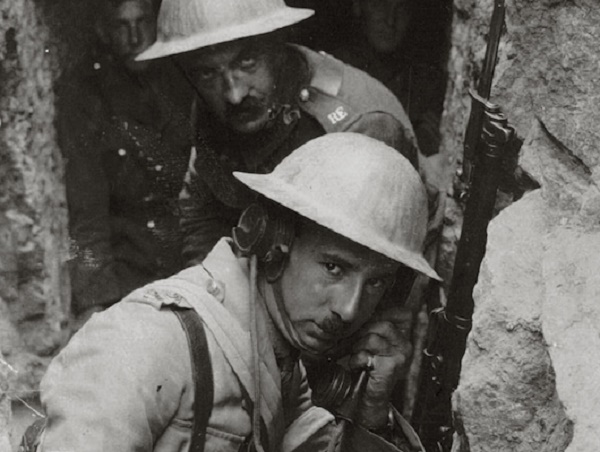The subject of WWI journalism seems oddly relevant today, especially in nations such as America where many feel as if they are not being fully informed regarding current military operations. This was a problem in Britain approximately one hundred years ago, when restrictions on information kept reports from revealing the full truth. There were a few different factors that influenced restrictions on WWI journalism, namely the need for propaganda and the desire to keep information out of the enemy’s hands.
Propaganda was largely used to build hatred toward Germany, in the hopes of gaining support for the British. Reporters were coerced into writing false stories of German misdeeds. While there was certainly a great deal of violence on both sides, the goal of a great deal of British WWI journalism was to demonize the enemy and make them look like monsters. This type of propaganda was often believed, due to the inclusion of some events which were actually widely known to be true. When fictitious acts of cruelty were set on paper alongside real accounts of executions, it became difficult to tell fact from fiction.
On the flip side of that coin, many true stories were not permitted at all. This was especially true when the war first began. While it is true that some of this information was kept secret to protect the troops, WWI journalism was also suppressed in cases where the writer had shown any sense of ridicule toward the war itself or the decisions made by the government and military. Under the Defense of the Realm Act, journalists were threatened with arrest should they choose not to follow such restrictions.
Not only were many reporters hindered from reporting the full facts of the war, but they were denied access to the swiftest means of obtaining those facts in the first place. Lord Kitchener made it clear early on that WWI journalism was not to be conducted from the front lines. Two men broke this rule, and they were threatened with friendly fire if they attempted to do so again. While some reporters were eventually allowed access to the battlegrounds, they were still restricted in terms of what they could write, The Guardian reports.
The overall goal of suppressing WWI journalism was to prevent any potential harm to British morale, and to strengthen such morale through propagandist stories. While many journalists fought these rules, some did not have as much of a problem with them. In fact, a good few felt that supporting the war effort was their duty as British citizens. While it may not be particularly common, it is possible that this particular view of WWI journalism may be held by some in favor of today’s standards of war reporting.
